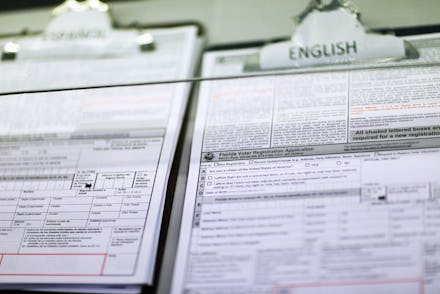Trump election integrity panel won’t seek data on some of the nation’s most vulnerable voters

When President Donald Trump’s “election integrity commission” started asking for reams of information on voters nationwide, the fears cropped up immediately.
Where would millions of records including voters’ names, addresses and other vital data be stored? How would those files be used, watchdogs and the public wanted to know — and how safe would they be from hackers or identity thieves?
In an ongoing tangle of condemnations and legal challenges, the vice chairman of the panel, Kansas Secretary of State Kris Kobach, has sought to reassure skeptical election administrators, defiant politicians and worried voters that only information available by each state’s law would be sought — and it would be protected.
The worries have reportedly risen to such a pitch that at least some scattered pockets of voters have pre-emptively chosen to “deregister,” or remove themselves from the rolls entirely, to limit their exposure to a possible data breach.
However, it seems details on at least one population that might have particularly intense concerns about privacy won’t be sought by the panel: voters whose information is kept on what are known as “private” rolls.
New York State election law, for example, provides that by court order the voter registration information of people who have experienced domestic violence, harassment or stalking may be kept separate from the general rolls.
The law specifies such files would “not be made available for inspection or copying by the public or any other person, except election officials acting within the course and scope of their official duties.”
Asked to clarify whether the commission might possibly try to cull that data, Marc Lotter, a spokesman for Vice President Mike Pence, the panel’s chairman, signaled it would not.
“As has been previously pointed out many times, the commission only seeks publicly available data according to individual state law,” Lotter said Tuesday via email.
The Pence-Kobach commission has so far met only once. That gathering took place July 19 in Washington, D.C., with a cameo by Trump himself.
Members of the public weren’t allowed to comment at the initial meeting, but the panel had already started accepting — and publishing online — written remarks, many of them scathing. However, the panel’s page on the White House website hasn’t been updated with any public comments received after July 12.
Lotter said the commission is “currently working to migrate to a new system to receive and post public comments, which we expect to become available soon.”
He also said the panel will get an update on the status of voter data collection from the states at its next, as yet unscheduled, meeting.